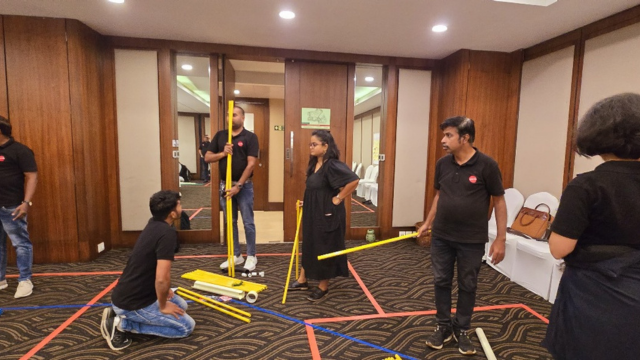Over the past decade, OKRs have emerged as the go-to Goal management framework for fast paced and ambitious organizations. Many of our clients have realized quick business results. And this has been only the icing on the cake. The actual benefits are much more long term. Here are some of them:
Laser Focus on Priorities:
By virtue of the very structure of the OKR Framework, it allows organisations, teams and individuals to focus on what matters most. It hence allows organizations to choose ‘what not to do’ as well. OKRs are the creamy layer over the ‘Business as Usual’ that allows you to prioritise those few goals that create the most impact on your team or business bottom-lines. It’s similar to using the 80-20 rule, by focusing on the 20% priority goals, you achieve 80% of business impact.
Higher Aspirations:
Unlike most water-fall goal setting frameworks, OKRs are not just top-down cascades. It encourages individuals and teams to add bottom-up OKRs to the strategic and tactical OKRs. As a principle, when Organizational OKRs are created, teams and an individual can also add their own ideas and aspirations to these organizational goals. This not only helps in tapping into the collective intelligence of the organisation, but it also creates higher levels of involvement and accountability.
Greater Alignment:
OKRs by their very nature need to be aligned. Borderless OKRs help foster teamwork and ensure greater alignment with the overall strategic OKRs. OKRs structures look like fractals rather than top-down cascaded goal trees. It unleashes the potential of teams.
Job Significance:
Due to better alignment of team OKRs to the organisational OKRs, employees can clearly see how their work contributes to the organisation’s success. This boost employee morale like nothing else. It pushes them to want to contribute more and deters them from being seen as ‘cogs’ in the system.
Employee Engagement & Collaboration:
OKRs help in linking aspirations to strategic and tactical goals, thus providing job significance and alignment. Teams are hence naturally geared to be motivated and they collaborate better. The called out interdependence between teams and the transparent progress allows them to support each other in real time, rather than waiting for a formal business review.
Increased Innovation:
The collective intelligence of the organisation combined with challenging, focused and aligned goals result in employees wanting to contribute more. And hence, OKRs create an agile culture where rapid experimentation, a ‘fail-fast’ mindset and organizational learning is a given. This contributes to the level of innovation across the board.
Ownership and Authorship:
More authorship means more ownership. With OKRs, teams and members are constantly involved and supported by agile leadership. The leader plays the role of a coach and a facilitator allowing team members to co-create the blueprint for organizational growth.
Value Creation:
Lastly, OKRs help focus on the outcome (results) and not the activity. This leads to employees spending more time in finding solutions to create better results rather than simply completing activities in their to-do lists. OKRs have helped organizations blitz scale and achieve exponential growth. And they have helped transform legacy organizations into modern, progressive and agile work places.





